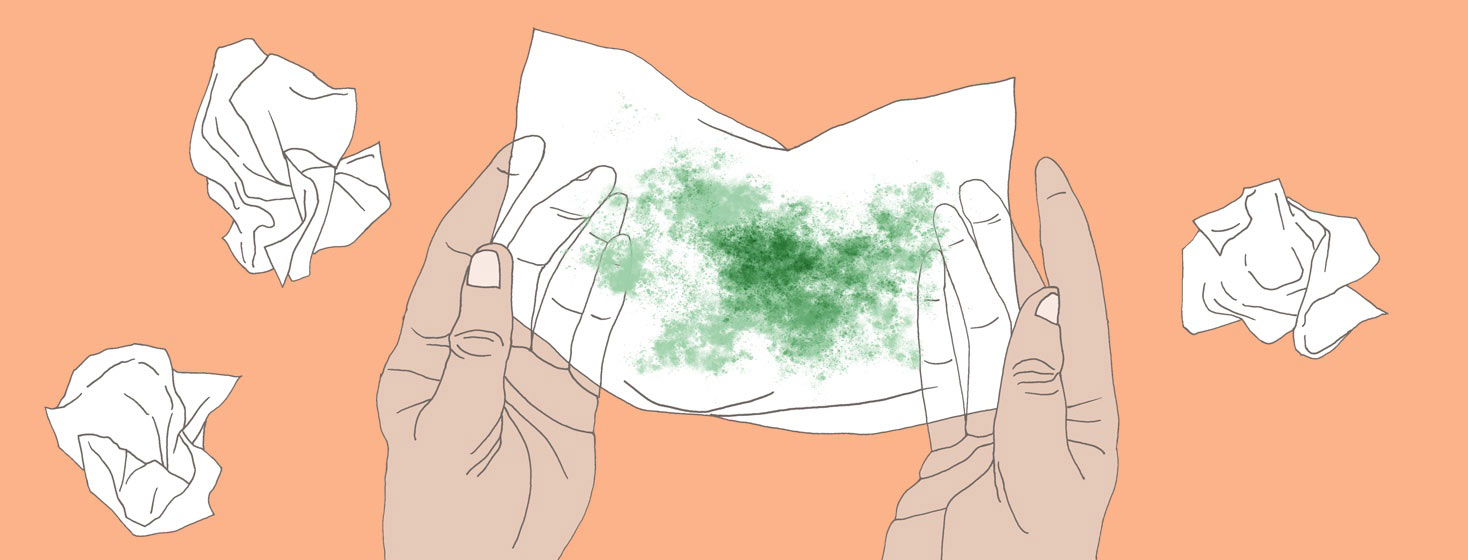Understanding Mucus in Your Lungs
Reviewed by: HU Medical Review Board | Last reviewed: May 2024 | Last updated: May 2024
Mucus in the lungs, also called phlegm or sputum, traps irritants so you can cough them out. This helps protect you from infections. Mucus also helps clear smoke, dust, and other irritants from your airways.1,2
Mucus buildup is a common symptom of lung disease, including chronic obstructive pulmonary disease (COPD). Unfortunately, extra mucus in the airways can make breathing harder and lead to serious airway problems.1,2
What effects does extra mucus have on the body?
Symptoms of having extra mucus look different for everyone with COPD. Mucus can vary in terms of:2
- How much mucus you have
- How thick the mucus is
- Where the mucus is
- How well you can cough and clear the mucus
Mucus can lead to health problems when it builds up in the airways. Excess mucus can trap irritants in the airway and block airflow. An inability to remove mucus can lead to:1-5
- Infections
- Lung irritation
- Chest tightness
- Shortness of breath
- Symptoms of anxiety and depression
- Lower ability to exercise
- Higher risk of early death
What causes extra mucus in COPD?
Mucus is present in all of our airways. Our lungs use mucus to capture and remove pollutants, irritants, and germs that we inhale. Our bodies make more mucus to try to protect our lungs. This process is often triggered by airway inflammation.1,2
Between 25 and 70 percent of people with COPD have extra mucus in their airways. Mucus buildup is also called mucus plugs. There are a few reasons why this happens. As COPD progresses, mucus tends to become thicker. Also, your chest muscles may become weaker. And poor airflow results in a less productive cough. This can make it harder to cough up mucus.1-3
Smoking is a common cause of COPD. Smoking can make mucus thicker and increase the amount of mucus in the airways. Nicotine, the addictive chemical in cigarettes, damages cells called cilia in the airway. Cilia move together to bring mucus out of the lungs. Damaged cilia cannot move as much mucus out of the airways.1,2
How can mucus be prevented or treated?
Talk to your doctor about ways to prevent and clear mucus from your lungs. Different strategies work better for different people. Your doctor can also help monitor your symptoms to see what works. Ways to manage mucus include:1,2
- Coughing it up – Coughing techniques can loosen mucus and help it move out through the airways.
- Postural draining – Lying in certain positions can help the mucus clear.
- Quitting smoking – Some people have less mucus buildup just after quitting smoking because cells in the airway are able to clear mucus better.
- Staying hydrated – Liquids help thin out mucus.
- Watching dairy intake – Mucus may thicken because of milk, ice cream, and other dairy products.
- Preventing infections – Stay up to date on vaccinations, and take steps to reduce your risk of respiratory diseases.
- Using airway clearance methods – Chest physical therapy, airway clearance devices, or positive expiratory pressure (PEP) devices can help clear mucus.
Your doctor may recommend certain over-the-counter or prescription medicines that make it easier to cough up mucus. These drugs work by thinning or loosening mucus. They include:1,2
- Mucinex DM® or Robitussin® (guaifenesin)
- Mucomyst® (acetylcysteine)
Where can I find support?
Living with COPD can be hard. Finding support from friends and loved ones is important. Talk to people you trust, including a therapist, about how COPD affects you. Support groups and online resources also can be helpful. Here are a few specific ways to get support:1
- Join a Better Breathers Club meeting to get support from others with breathing challenges.
- Join an online support community on Inspire to connect with peers.
- Call the American Lung Association HelpLine at 800-LUNG-USA, or access it online. Its medical professionals can answer any questions you may have about COPD.
When should I seek medical help?
For many people who smoke, cough and mucus worsen slowly over time. It is common for people not yet diagnosed with COPD to discount this as a normal smoker’s cough. However, coughing up mucus is a sign of problems in the airway. Ignoring mucus can lead to serious health problems.1
Talk to your doctor if you cough up mucus for more than a few weeks. Use a journal to track when it starts, how often it happens, and how long it lasts. This can help you answer questions your doctor may ask. Make sure to write down any questions you have for your doctor as well.1

Join the conversation